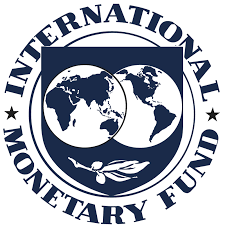 According to the International Monetary Fund, global economic growth is set to rebound this year and expand by 6%, the fastest expansion since 1980. Also according to the IMF's forecast, global economic growth will slow down in 2022, as it expects a 4.4% expansion.
According to the International Monetary Fund, global economic growth is set to rebound this year and expand by 6%, the fastest expansion since 1980. Also according to the IMF's forecast, global economic growth will slow down in 2022, as it expects a 4.4% expansion.
Last year, the global GDP fell by 3.3%, mainly due to the economic crisis caused by the advance of the COVID-19 virus. So far, 133,057,504 individuals around the world have been infected with the virus, while the death toll stands at 2,887,206. The most affected country is the United States, with 31,560,438 cases and 570,260 total deaths, followed by Brazil, India, France and Russia.
China will certainly lead the global economic recovery, as its GDP is expected to grow by 8.4% this year, and by 5.6% in 2022. Another Asian country that is expected to recover significantly is Japan, which is expected to grow by 3.3% this year and 2.5% next year.
Among Western countries, the United States will lead economic growth, as its economy will expand by 6.4% this year, the fastest expansion since 1984, and by 3.5% next year. In the same way, the Eurozone economy will expand by 4.4% this year and will advance by 3.8% in 2022.
Current global vaccination efforts and the significant increase in financial aid may be the main reasons behind the economic rebound. Countries like the United States and the United Kingdom have launched aggressive vaccination campaigns, though the European Union is still struggling.
Despite this, economic growth is expected to be uneven. Third-world countries that can't afford to provide financial aid are expected to suffer more consequences of the pandemic, as well as countries that are highly dependent on tourism.
"The outlook presents daunting challenges related to divergences in the speed of recovery both across and within countries and the potential for persistent economic damage from the crisis," commented IMF Chief Economist Gita Gopinath.
Recent gains in terms of poverty reduction will be reversed, as extreme poverty increased significantly last year. According to data released by the World Health Organization, around 119-124 million people have been driven into extreme poverty last year due to the pandemic.
"The COVID-19 pandemic has thrived amid the inequalities in our societies and the gaps in our health systems," commented World Health Organization Director Tedros Adhanom Ghebreyesus.
